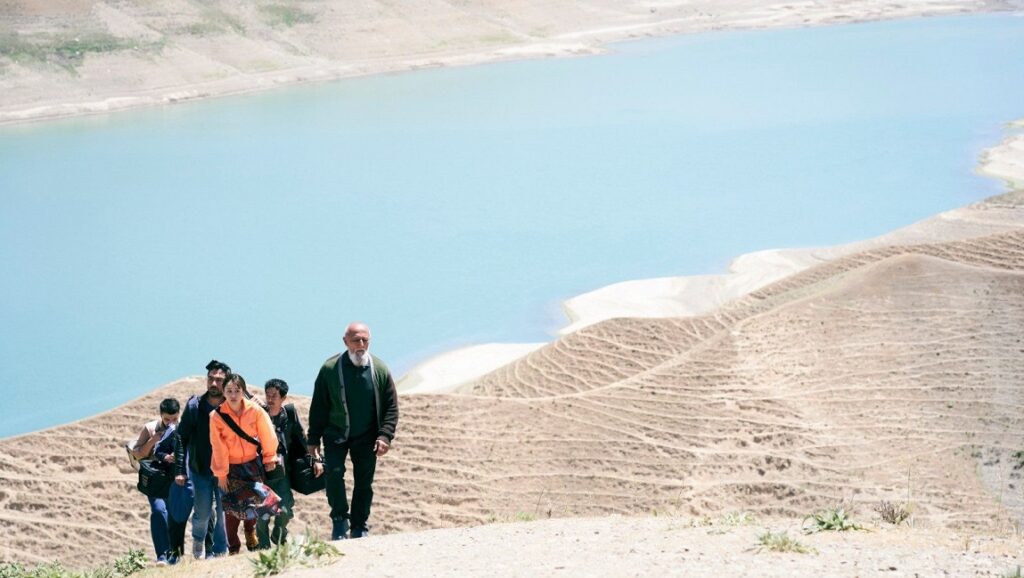To the Ends of the Earth is a masterwork of adventurous, boundary-less filmmaking.
Kiyoshi Kurosawa has been here before. Not to Uzbekistan, where his newest film is set — and which is indeed new territory, geographically speaking — but to this border zone openly contested by opposing modes, genres, and moods. To the Ends of the Earth begins as a kind of travel film, or more precisely, as a document of a TV crew failing to produce one: The host, Yoko (Japanese pop singer Atsuko Maeda, now a regular Kurosawa collaborator), can’t muster the pep required to perform her role as world ambassador for audiences back home, who are conditioned to believe that foreign lands uniformly provoke wonderment and irrepressible perkiness, when in fact disappointment and displacement prevail. Feeling lost, and in the face of escalating, if minor, production troubles, Yoko abandons the shoot, strikes out on her own, and penetrates, with mounting dread, ever more uneasy terrain. She might have some reason to be afraid given her tour guide, though Kurosawa’s reputation as a J-horror pioneer remains frustratingly overblown: More often than not, he journeys to different destinations altogether, where fear — of the other, of the self — is merely a byway on the path to transformation.
A midway sequence that suspends Yoko in the dizzyingly alien halls of Uzbekistan’s national opera, and concludes when she emerges from this thicket of arabesques into an empty theater, where she takes the stage and pierces the tension with an aria, is the film’s trajectory in ornately crafted miniature. At this point, her sojourn only half completed, Yoko has discovered that suspension — between home and abroad, trembling and ecstasy, the horror movie and the musical — leaves a person, or a work of art for that matter, restless, uprooted, and potentially quite alone. But she has farther to go before she will learn that such feelings are the iron upon which explorers are made. Kurosawa learned this long ago, of course, and To the Ends of the Earth allows the director to once again test his mettle in risk-filled territory, territory that he alone seems willing to hazard — no one else is making movies like this. The final moments do, however, grant him the gift of a fellow traveler: as Yoko crests a hill, she finds herself folded into the natural splendor of an ancient mountain chain, and, suddenly, the sound of an adventurer’s spirit, newly forged, rings out clarion across the range, reaching — the film along with it — a previously unknown summit.
Originally published as part of Toronto International Film Festival 2019 | Dispatch 1.


Comments are closed.